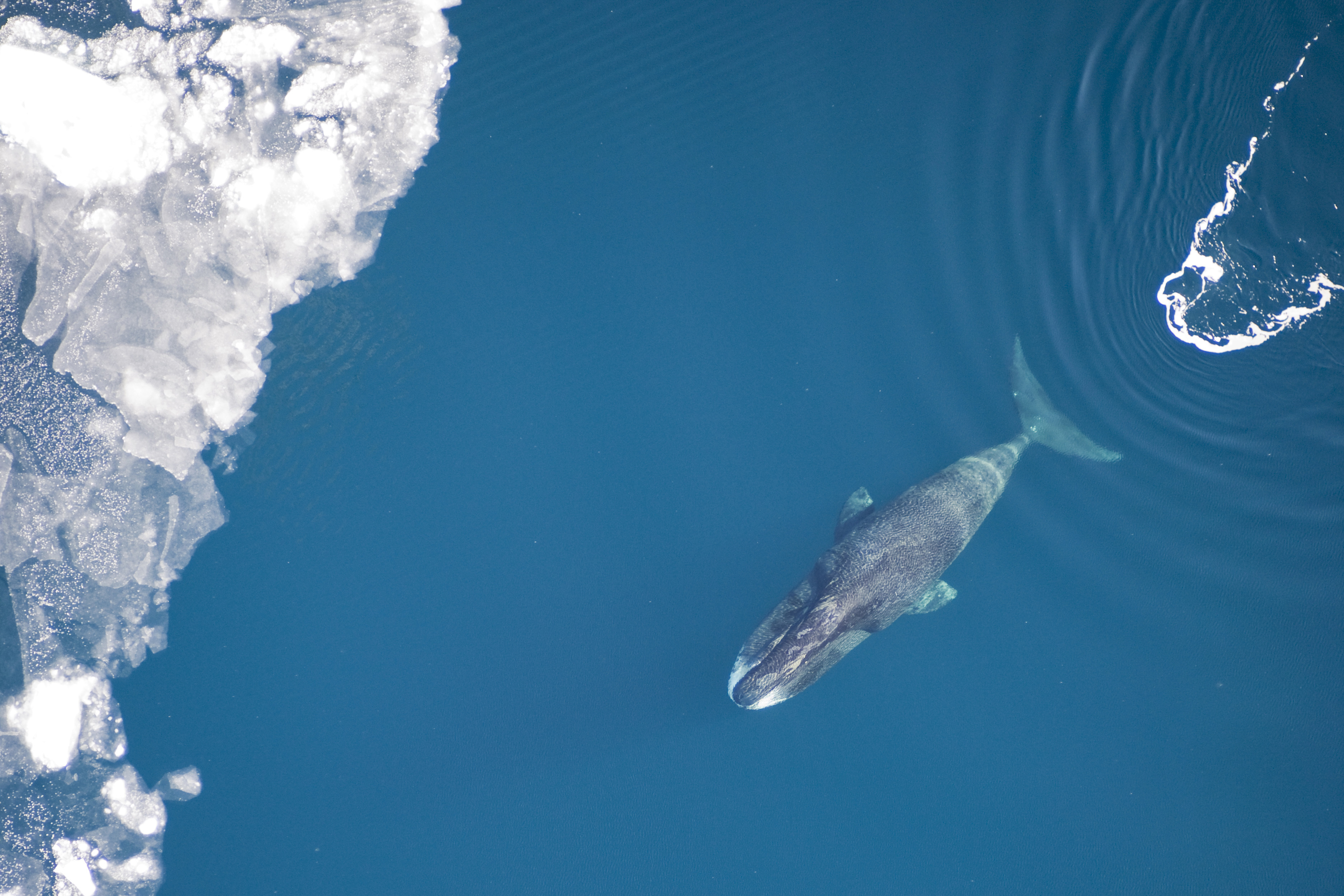Media release
From: Springer NatureClimate change: Whale faeces record warming-related toxic algal blooms
A link between increasing algal bloom toxins entering the food chain and rising ocean temperatures is detected in an analysis of bowhead whale faeces reported in Nature this week. The findings, based on nearly 20 years of data from the Arctic, may improve understanding of how warming oceans increase the algal toxin concentrations, which could threaten food security for native communities.
Over the past 20 years, the Arctic has experienced ocean warming and sea ice loss, which have changed the marine environment. Such changes may provide favourable growing conditions for harmful algal blooms, which produce toxins that can have detrimental effects for wildlife and humans. However, there are limited data on how exposure to these harmful toxins may be changing in the Arctic.
An assessment of the algal toxin presence in Arctic food webs through a detailed quantification of toxins in bowel samples from 205 bowhead whales from the Beaufort Sea, collected over 19 years, is presented by Kathi Lefebvre and colleagues. They find that algal toxin concentrations were strongly correlated with ocean temperature changes, as well as open water area (how much water is ice-free), wind speed and atmospheric pressure. Higher toxin levels were associated with increased ocean warming and reduced sea ice extent. This finding suggests that more toxins are entering the food chain, affecting marine animals, and potentially humans who rely on marine resources for food, the authors conclude. They recommend ongoing monitoring for harmful algal toxic bloom exposure in marine animals to protect Arctic communities that depend on these resources for food.
***
Springer Nature is committed to boosting the visibility of the UN Sustainable Development Goals and relevant information and evidence published in our journals and books. The research described in this press release pertains to SDG 13 (Climate Action) and SDG 14 (Life Below Water). More information can be found here


